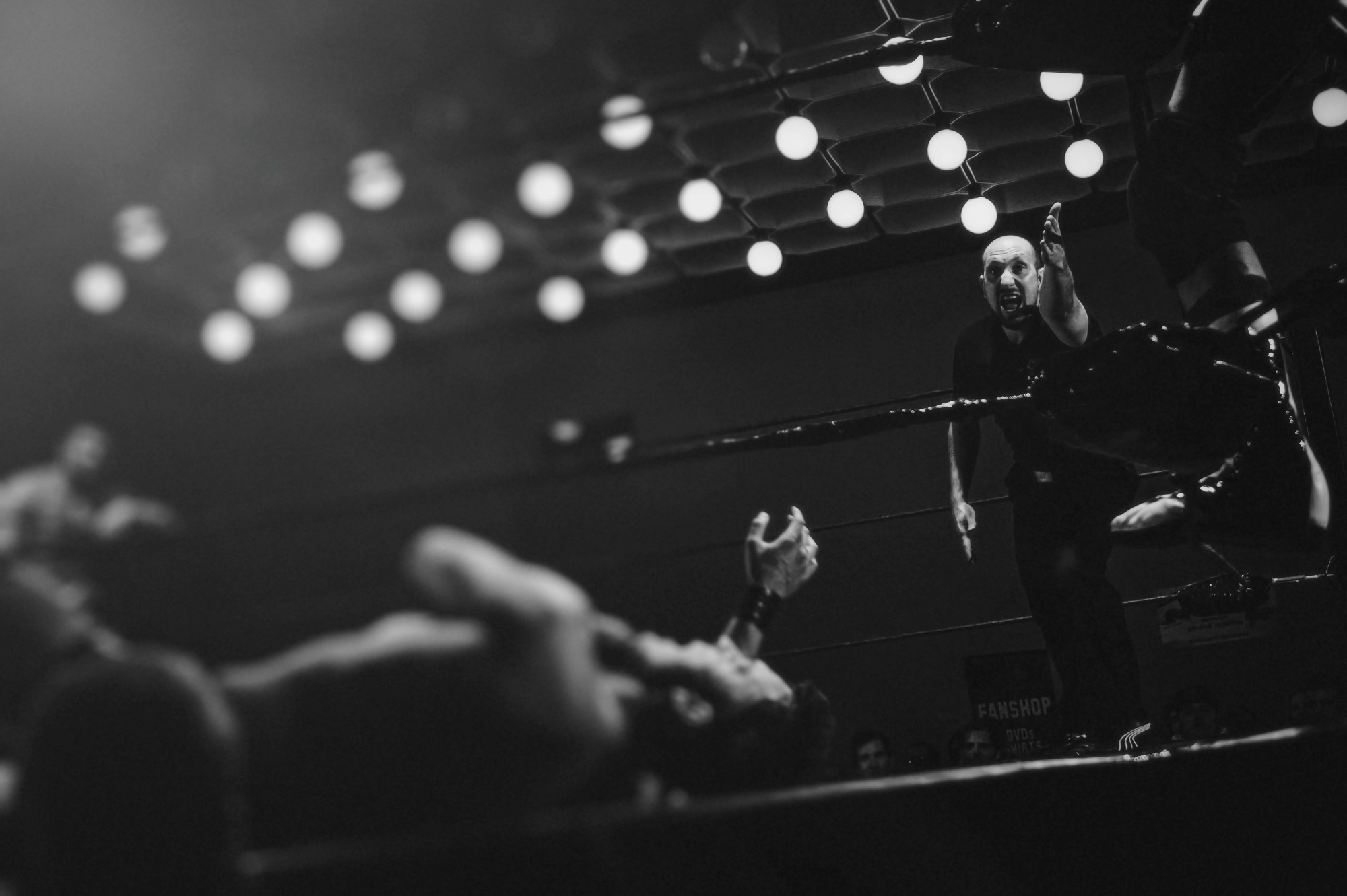
Shortly after midnight on December 2, 2021, the Collective Bargaining Agreement (CBA) between Major League Baseball (MLB) and the Player’s Association (MLBPA), expired.1With no CBA in place, the owners of the 30 MLB teams unanimously voted to “lock out” the players.2 A “lockout” involves the owners halting all baseball activities, as well as literally locking the players out of team facilities.3 Typically, this time of year for the MLB revolves around player contract negotiations and training.4 By stopping these activities, the owners hoped to pressure the MLBPA into expediting CBA negotiations, and into bending to the will of the owners for the next CBA.5 Furthermore, the owners hoped that a work stoppage with some free agents remaining unsigned would weaken union solidarity as the lockout dragged on.6 In a statement, the MLBPA claimed that the lockout “is not required by law or for any other reason. It was the owners’ choice, plain and simple, specifically calculated to pressure players into relinquishing rights and benefits, and abandoning good faith bargaining proposals that will benefit not just players, but the game and industry as a whole.”7
Reports indicated that both sides are far apart on their proposals,8 and, on March 1, 2022, Commissioner Rob Manfred announced that this lockout will cause the cancellation of some regular season games.9 This marks the first time in 27 years that the MLB has lost regular season games due to a labor stoppage.10 The MLB had set a deadline of March 1 at 5:00 P.M. for the league and the players to reach a deal on a new CBA without the cancellation of regular season games.11 The MLBPA unanimously rejected what the MLB called its “final” offer.12
Three of the major points of contention for the MLBPA were their shrinking share of league revenues, service time manipulation (in which teams deliberately keep good players in the minor leagues to delay their eligibility for free agency and arbitration), and the league’s growing “tanking” problem. Tanking is a strategy in which teams, with no intention of winning games, slash their payroll, and hope to lose enough to secure high draft picks.13 Notable players, such as All-Star pitcher and World Series Champion, Max Scherzer, have publicly maligned tanking in the MLB.
“This negotiation is about the integrity of the game from our eyes. . . . We feel as players that too many teams have gone into a season without any intent to win during the past. Even though that can be a strategy to win in future years, we’ve seen both small-market and large-market clubs embrace tanking, and that cannot be the optimal strategy for the owners.”14
Additionally, players wanted to be able to enter free agency earlier than they have in the past.15 Because rookie contracts are relatively inexpensive, this change would allow successful players to cash in on the much more lucrative second contracts slightly earlier in their careers.16
With respect to league revenue sharing, the MLBPA targeted the league’s Competitive Balance Tax, which was said to be the point that both sides were farthest apart on.17 Rather than imposing a hard salary cap like other professional sports leagues, the MLB assesses financial penalties against teams whose payrolls exceed a certain amount.18 The players contend that the CBT essentially functions as a salary cap, and they would like the threshold amount to increase.19 A higher salary cap (or pseudo-salary cap) would mean that owners would have more money to pay the players with.
For their part, the owners wanted mostly all of the provisions from the previous CBA to stay the same.20 One major change that the owners were advocating for is an expanded playoff model. They wanted to increase the number of teams that make the playoffs at the end of the regular season.21 The owners are keen on a playoff expansion because teams that qualify for the postseason receive 100% of the television revenue from postseason games.22 The players pushed back on this idea out of concerns that it would encourage teams to spend less on top players knowing that they could still slide into the expanded playoff format and benefit from the postseason television revenue.23 Theoretically, with fewer playoff spots, teams would be forced to be more aggressive in free agency and at the trade deadline to improve their rosters.24 Fortunately, it seems that the two sides were able to agree on an expansion, albeit only to a 12-team playoff rather than the 14 that the owners wanted.25
With the league suffering from its first work stoppage in 27 years it is informative to return to the MLB strike of 1994-95 for insight into how this year’s work stoppage could have been resolved. While the cancellation of games is certainly an undesirable outcome for players, owners, and fans, history shows us that it could have been much worse. In 1994, the owners, reasoning that an impasse had been reached, implemented a salary cap, which prompted the MLBPA to file unfair labor practices charges with the National Labor Relations Board.26 The players accused the owners of failing to negotiate in good faith, and imposing the cap without a genuine impasse.27 The NLRB then voted to seek a court injunction to reinstate the provisions of the prior collective bargaining agreement.28 The case was then brought to the U.S. District Court for the Southern District of New York, where Judge Sonia Sotomayor granted the NLRB’s request for a preliminary injunction against the owners.29 In the wake of Judge Sotomayor’s decision, the MLBPA called off the strike, and the owners did not proceed with a lockout, thus beginning a shortened 144-game MLB season.30 This time, court appearances and injunctions won’t be necessary. Importantly, the league’s offer from just before the March 1 deadline was characterized as their “best and final offer,” not their “last best offer.”31 The distinction between these two terms is actually quite important, as the phrase “last best offer” is used before management declares an impasse.32 The declaration of an impasse would likely have resulted with the two sides in U.S. District Court again. MLB Commissioner Rob Manfred said at the time “Our negotiations are deadlocked right now, but that’s different than using the legal term ‘impasse,’ and I’m not going to do that right now.”33 Instead, Manfred and the owners wanted to “keep the idea that we are willing to go back to the table and make an agreement.”34
This lockout had dragged on long enough to the point where political pressure to negotiate was beginning to mount as well. On March 2, Bernie Sanders tweeted “The 30 Major League Baseball owners are worth over $100 billion. The value of their teams increased by more than $41 billion since they bought them. Mr. Manfred: End the lockout. Negotiate in good faith. Don’t let the greed of baseball owners take away our national past time.”35
Finally, after a 99-day lockout, the MLB and MLBPA reached a new collective bargaining agreement on March 10, 2022.36 26 of the 38 MLBPA leaders voted in favor of a 5-year CBA that saw the players’ union make significant gains with respect to minimum salaries and the CBT threshold.37 All 30 team owners unanimously ratified the new CBA, which granted them a slightly expanded postseason, and the ability to put advertisements on player uniforms.38 Minimum player salaries will now begin at $700,000, an unprecedented 23% increase from the prior year, and will increase to $780,000 in 2026, the final year of the new CBA.39 The new CBT threshold will be set at $230 million, a 10% increase from last year, and will reach $244 million in 2026.40 Other changes in the new CBA include: a 12-team postseason; a universal designated hitter; a six-team draft lottery implemented to curtail tanking; and two measures aimed at limiting service time manipulation.41
With the new CBA in place, the second-longest42 lockout in MLB history has finally come to a merciful end, and the 2022 season is set to begin on April 7th.
Daniel Wachenfeld is a Second Year Law Student at the Benjamin N. Cardozo School of Law and a Staff Editor at the Cardozo Arts & Entertainment Law Journal. Daniel is interested in entertainment, sports, and intellectual property law.
- R.J. Anderson, MLB Lockout: Owners Trigger Baseball’s First Work Stoppage since 1994-95, CBS Sports (Dec. 2, 2021, 8:49 AM), http://www.cbssports.com/mlb/news/mlb-lockout-owners-trigger-baseballs-first-work-stoppage-since-1994-95 [https://perma.cc/SQ3Y-YA23] (last visited Feb. 22, 2022).
- R.J. Anderson & Mike Axisa, MLB Lockout: Timeline of CBA Negotiations Between MLBPA and Owners with Crucial Week of Talks Underway, CBS Sports (Feb. 22, 2022), https://www.cbssports.com/mlb/news/mlb-lockout-timeline-of-cba-negotiations-between-mlbpa-and-owners-with-crucial-week-of-talks-underway/ [https://perma.cc/7NGM-475B] (last visited Feb. 22, 2022).
- James Dator, The MLB Lockout Explained, in 5 Minutes, SBNation (Dec. 2, 2021, 1:25 PM), https://www.sbnation.com/mlb/2021/12/2/22814019/mlb-lockout-explained-in-5-minutes [https://perma.cc/3JYQ-F4JK] (last visited Feb. 22, 2022).
- Id.
- Id.; Dayne Perry, MLB Lockout: Everything to Know about Baseball’s First Work Stoppage since 1994-95, CBS Sports (Dec. 12, 2021, 8:30 PM), https://www.cbssports.com/mlb/news/mlb-lockout-everything-to-know-about-baseballs-first-work-stoppage-since-1994-95/ [https://perma.cc/4RYX-F2CF] (last visited Feb. 22, 2022).
- Dayne Perry, MLB Lockout: Everything to Know about Baseball’s First Work Stoppage since 1994-95, CBS Sports (Dec. 12, 2021, 8:30 PM), https://www.cbssports.com/mlb/news/mlb-lockout-everything-to-know-about-baseballs-first-work-stoppage-since-1994-95/ [https://perma.cc/4RYX-F2CF] (last visited Mar. 1, 2022).
- Id.
- See Jeff Passan & Jesse Rogers, MLB Lockout: MLBPA Rejects League’s Final CBA Proposal at Deadline: February 28, 2022 Update, ESPN (Feb. 28, 2022), https://www.espn.com/mlb/story/_/id/32882139/mlb-lockout-owners-players-talking-baseball-fans-worried-here-latest [https://perma.cc/XB6L-SNZ2] (last visited Mar. 1, 2022).
- Dylan Perry, Matt Snyder, & Mike Axisa, MLB Lockout: Rob Manfred Cancels Regular Season Games after Owners, MLBPA Fail to Reach Deal, CBS Sports (Mar. 1, 2022, 5:28 PM), https://www.cbssports.com/mlb/news/mlb-lockout-rob-manfred-cancels-regular-season-games-after-owners-mlbpa-fail-to-reach-deal/live/ [https://perma.cc/Q8A4-YRA3] (last visited Mar. 1, 2022).
- Id.
- Id.
- Id.
- Dator, supra note 3.
- Mark Powell, Max Scherzer Calls out Teams that Tank with ‘No Intent to Win’, Fansided (Jan. 2022), https://fansided.com/2022/01/04/max-scherzer-calls-teams-tank-mlb-lockout/ [https://perma.cc/24X2-NGA2] (last visited Mar. 1, 2022).
- Dator, supra note 3.
- Id.
- Perry, Snyder, & Axisa, supra note 9.
- Id.
- Id.
- Anthony Witrado, What Do Owners Want from the MLB Lockout? Basically, for Nothing to Change, Forbes (Dec. 9, 2021, 3:19 PM), https://www.forbes.com/sites/anthonywitrado/2021/12/09/what-do-owners-want-from-the-mlb-lockout-basically-for-nothing-to-change/?sh=796148624881 [https://perma.cc/UUS6-DMM4] (last visited Mar. 2, 2022).
- Ryan Phillips, MLB Owners Are Getting Expanded Playoffs in a New CBA, The Big Lead (Mar. 1, 2022), https://www.thebiglead.com/posts/mlb-owners-expanded-playoffs-new-cba-01fx1ynkr7q1 [https://perma.cc/U8AD-CCW2] (last visited Mar. 3, 2022); Dayne Perry, MLB’s Postseason Format Is Likely Headed for Big Changes Next Year; Here’s What it Might Look Like, CBS Sports (Oct. 5, 2021, 11:18 AM), https://www.cbssports.com/mlb/news/mlbs-postseason-format-is-likely-headed-for-big-changes-next-year-heres-what-it-might-look-like/ [https://perma.cc/SVH9-Z4FG] (last visited Mar. 3, 2022).
- Dator, supra note 3.
- Id.
- Phillips, supra note 21.
- Id.
- Paul D. Staudohar, The Baseball Strike of 1994-95, Monthly Lab. Rev. 21 (1997).
- Id. (stating that “[t]he declaration of an impasse is a dreaded scenario for the union because it means that management can implement its own proposals”).
- Id.
- Id.
- Id.
- Mike Axisa, MLB Lockout: Five Takeaways as Rob Manfred Cancels Regular Season Games after Owners, MLBPA Fail to Reach Deal, CBS Sports (Mar. 2, 2022), https://www.cbssports.com/mlb/news/mlb-lockout-five-takeaways-as-rob-manfred-cancels-regular-season-games-after-owners-mlbpa-fail-to-reach-deal/live/ [https://perma.cc/F6N7-DPHB] (last visited Mar. 3, 2022).
- Id.
- Id.
- Id.
- Bernie Sanders (@BernieSanders), Twitter (Mar. 2, 2022, 1:34 PM), https://twitter.com/BernieSanders/status/1499090716085170179.
- Alden Gonzales, MLB Commissioner Rob Manfred, Union Chief Tony Clark Hail New CBA As Lockout Ends, ESPN (Mar. 10, 2022) https://www.espn.com/mlb/story/_/id/33470321/sources-mlb-union-reach-tentative-agreement-new-cba-salvage-162-game-season [https://perma.cc/A6GZ-47MQ] (last visited Mar. 15, 2022).
- Id.
- Id.
- Id.
- Id.
- Id. The measures aimed at limiting service time manipulation include “a full year of service time awarded to players who finish within the top two in respective Rookie of the Year voting, and draft picks awarded to teams that promote players on Opening Day who finish among the top vote-getters for major awards.” Id.
- Id.



